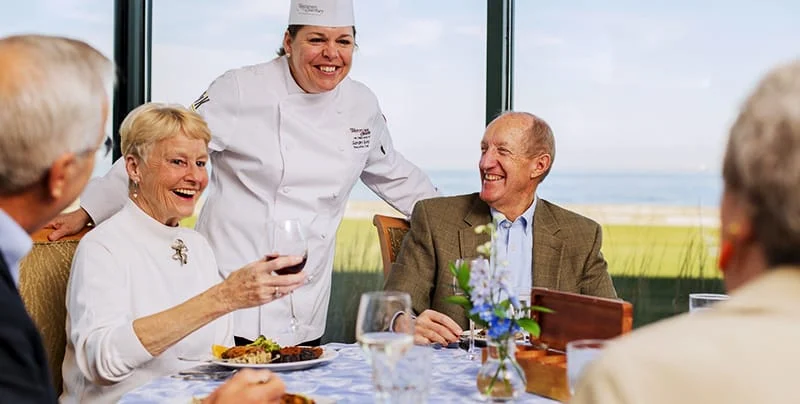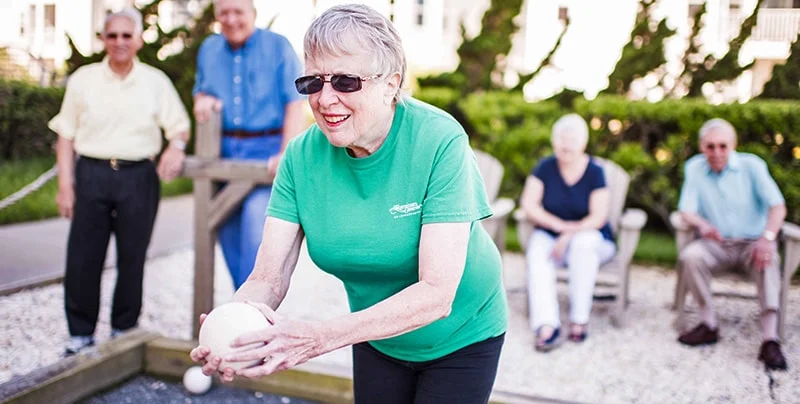Ways to Enhance the Joy of Family Members with Dementia (Memory Impairment)
A diagnosis of memory impairment is scary. Family and friends have a lot of extra work and corresponding opportunities to create more daily joy. How can you be a joy creator?
First, accept the condition without blame: memory impairment is a medical condition like diabetes. However, just as measures can be taken to help a diabetic continue to live a happier and longer life by changing to sugar-free snacks and getting more physical exercise, neither should we crawl into a hole and take memory impairment lying down. Use or lose it does not just apply to physical strength, but to brain health, too.
Continuing social activities and exercise are critical. Playful physical and social exercise can slow memory impairment and temporarily regain some ground. What is good for the heart is also good for the brain. PingPong Gives is a partner organization that promotes the research-based benefits of playing ping-pong. See their website at PingPong.gives. Join together in doing what your friend or loved one likes: golf, swimming, walking, hiking, or discussion groups. Engage in activities your loved one enjoys. Refrain from worrying about whether they will thank you or if they will remember it later. They were joyful when you did the activity. Creating more moments of joy is what matters. Be creative about new things to do together.
Focus on what they can do, not what they cannot do. Celebrate the strengths that remain. Most people want to remain useful and contribute. If your loved one always made the grocery list and cooked dinner, it is important to help them continue these activities as safely as possible. Encourage as much independence as is safe. Ask them to help with daily tasks like folding the laundry or setting the table. These simple tasks provide a sense of purpose and joy.
Do not let memory impairment define them. The core person whom we have always loved is still the person we are helping. Prioritize spending quality time together and find joy in simple activities like a walk around the neighborhood, a shared meal, or listening to music together. Ensure you make time for your relationship while also being a partner in care.
Let them be wrong and let mistakes go. Don’t sweat the small stuff; it is all small stuff. Will the mistake matter at the end of the day? Avoiding correcting your loved one over things that do not matter is challenging. We believe correcting them will help memory, harkening back to when we were teaching a child whose brain is continuously improving. Memory impairment pulls the other way. Correcting your loved one unnecessarily steals joy and reminds them of the impairment, not their remaining strengths. Play along. Meet them where they are. In that moment of confusion, find a way to connect with them by listening to them and validating their feelings. For example, if your spouse’s reality is from a time when your children were young, this could be an opportunity to find old photo albums of earlier years and reminisce together about being parents. Telling a person her spouse is dead makes them relive that horrible news for the first time, again. Saying John called to say he would be late coming home and redirecting attention elsewhere is the kinder approach.
Take care of yourself. One of the most significant challenges is the changing roles in the relationship. Transitioning to a primary care partner can be gradual or sudden. It is a demanding task. Many fears arise for both parties as they navigate life with a memory impairment. The most significant concerns are the fear of forgetting, being forgotten, and losing their relationship. It is crucial to focus on the present and live in the moment. Seek help from others, attend support groups, take breaks, and find activities that bring you joy to maintain your well-being. This emphasis on balance can make you feel understood and supported in your role. In the later stages, kind tones, smiles, and love are recognized and help your loved one immeasurably in dealing with an increasingly strange world. Staying on the rested, not ragged, edge of care partnering helps us remain kind.
Be kind. Non-verbal cues like warm smiles, eye contact, or gentle touch convey love and understanding. Your loved one will never forget the non-verbal cues that express love and kindness.
Jennifer Cava, CTRS- Dementia & TR Specialist at Westminster-Canterbury on Chesapeake Bay
< Back


































